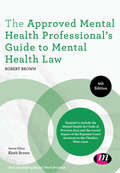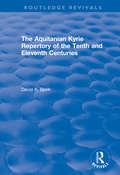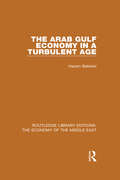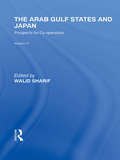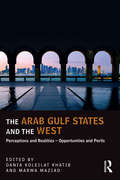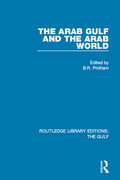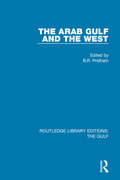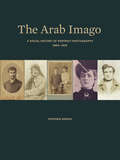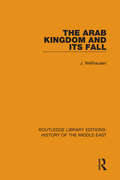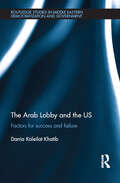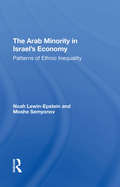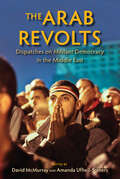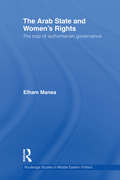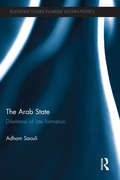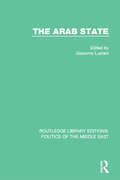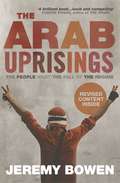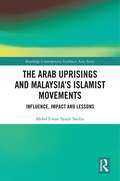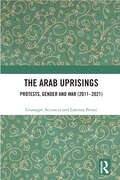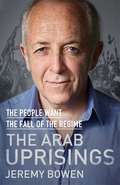- Table View
- List View
The Approved Mental Health Professional's Guide to Mental Health Law (Post-Qualifying Social Work Practice Series)
by Dr Robert BrownWritten specifically for Approved Mental Health Professionals (AMHPs), this book brings together key elements of the legislation, Code of Practice, Memorandum, Government Circulars and relevant case law and policy. It also discusses the role of an AMHP in the revised Mental Health Act, as well as the Key Competencies. This fully-revised fourth edition analyses updated legislation, case law and policy, while recent changes and cases covered include: - The revised English Code of Practice to the Mental Health Act - The revised Reference Guide to the Mental Health Act - A number of cases concerning the nearest relative - Clarification on personal accountability of the AMHP - Revisions to the tribunal report requirements in England - The impact of the Cheshire West case decisions in the Supreme Court An essential guide for practising AMHPs or those currently in training, this book contains extensive appendices which cover Mental Health Act Assessments, Practice Directions (first tier tribunal) and the AMHP Regulations for both England and Wales. It also includes checklists, case studies and exercises to aid practice and learning.
The Approved Mental Health Professional's Guide to Mental Health Law (Post-Qualifying Social Work Practice Series)
by Dr. Robert A BrownThis highly practical book brings together the elements of legislation, Code of Practice, Memorandum, Government Circulars and relevant case law, policy and AMPH regulations that trainees are required to get to grips with to pass the course and practice as a registered Mental Health Professional. This fully-revised fifth edition is an essential guide for practising AMHPs, or those currently in training. With extensive appendices which cover Mental Health Act Assessments, Practice Directions (first tier tribunal) and the AMHP Regulations for both England and Wales. it also offers checklists, multiple choice questions and exercises to aid practice and learning, and includes: - Updates to recent legislation, case law and policy - The impact of the Policing and Crime Act 2017 on patient admissions and the Mental Health Act - The implications of the 2017-18 Annual Report by the CQC and HIW looking at detained patients - Anticipated outcomes of the Mental Capacity Act (Amendment) Act 2019 - A new appendix documenting The Mental Health Act 1983 (Places of Safety) Regulations 2017
The Approved Mental Health Professional's Guide to Mental Health Law (Post-Qualifying Social Work Practice Series)
by Dr. Robert A BrownThis highly practical book brings together the elements of legislation, Code of Practice, Memorandum, Government Circulars and relevant case law, policy and AMPH regulations that trainees are required to get to grips with to pass the course and practice as a registered Mental Health Professional. This fully-revised fifth edition is an essential guide for practising AMHPs, or those currently in training. With extensive appendices which cover Mental Health Act Assessments, Practice Directions (first tier tribunal) and the AMHP Regulations for both England and Wales. it also offers checklists, multiple choice questions and exercises to aid practice and learning, and includes: - Updates to recent legislation, case law and policy - The impact of the Policing and Crime Act 2017 on patient admissions and the Mental Health Act - The implications of the 2017-18 Annual Report by the CQC and HIW looking at detained patients - Anticipated outcomes of the Mental Capacity Act (Amendment) Act 2019 - A new appendix documenting The Mental Health Act 1983 (Places of Safety) Regulations 2017
The Approved Mental Health Professional′s Guide to Psychiatry and Medication (Post-Qualifying Social Work Practice Series)
by Robert Brown, Gwen Adshead and Alan PollardThis book is essential reading for all Approved Mental Health Professionals (AMHPs) and those students and practitioners on mental health Post-Qualifying awards. It covers the core competencies of the AMHP and how the use of medication fits within the roles of the mental health professional. Fully updated to include aspects of the recently amended Mental Health Act 1983, this guide shows how the law is applied to compulsory administration of medication, the law relating to consent to treatment and the relevance to the European Convention on Human Rights.
The Aquarian Conspiracy
by Marilyn FergusonThe Aquarian Conspiracy is a breathtaking, compelling study of the changes in work, relationships, medicine, religion, and education during the 1980s.
The Aquitanian Kyrie Repertory of the Tenth and Eleventh Centuries
by Richard Crocker David BjorkThis book was published in 2003. One of the most important but least studied of medieval chant repertories is that of the Kyrie. With their Latin texts, Kyrie melodies represented musical ambitions manifested alongside of and subsequent to Gregorian chant - ambitions which achieved stylistic and formal distinction. This study illuminates those features of the early Kyrie that give it its distinctive character and set it apart not only from Gregorian chant but also from other types of medieval chant. The repertory focused on in this book is a group of 22 West Frankish sources which are believed to have originated in several Aquitanian locations. The tradition represented by these manuscripts and their repertory of Kyrie melodies can be followed across a century and a half, from 950 to 1100. The Aquitanian manuscript tradition is significant because these sources represent by far the largest group of closely inter-related musical sources from the period, and the musical notation gives reliable indication of pitch up to a century earlier than other manuscripts of the time. By incorporating both a detailed musical study and transcriptions of these sources this book should be of interest to those who are concerned with the construction of these pieces as well as to those who wish to appreciate them, or even perform them.
The Arab Diaspora: Voices of an Anguished Scream (Routledge Advances in Middle East and Islamic Studies #Vol. 9)
by Ian Richard Netton Zahia Smail SalhiThe Arab Diaspora examines the range of roles the Arab world has played to various audiences on the modern and postmodern stage and the issues which have arisen as a result. The variety of roles explored reflects the diversity of Arab culture. With particular focus placed on political, diplomatic and cultural issues, the book explores the relationship between the Arab world and the West, covering topics including: Islam and its common ancestry and relationship with Christianity the varying forms of Arab civilization and its inability in more modern times to fulfil the dreams of nineteenth and twentieth century reformers continued stereotyping of the Arab world within the media. The Arab Diaspora is essential reading for those with interests in Arabic and Middle East studies, and cultural studies.
The Arab Gulf Economy in a Turbulent Age (Routledge Library Editions: The Economy Of The Middle East Ser.)
by Hazem BeblawiThe shock discovery of oil in the Gulf States thrust them from relative obscurity to the forefront of international finance and politics. It coincided with the breakdown of the international monetary system and the twin food and energy crisis, all of which helped to magnify the impact of the oil price increases. Yet, despite the continuing oil wealth enjoyed by the Gulf States, their economy has suffered some damaging blows in the recent past. The Iran—Iraq War has imposed a heavy burden on the Gulf countries which have contributed huge sums to Iraq. Internally, the Gulf economies have been hurt by the speculative boom generated by the unofficial stock-market in Kuwait which collapsed in the summer of 1982. This book, by an Arab economist long experienced in working in the Gulf economy, reviews the prospects for the region in the light of these external and internal problems and, drawing on the Kuwaiti example, suggests ways in which changes can be made.First published in 1984.
The Arab Gulf States and Japan (Routledge Library Editions: Japan)
by Walid SharifDuring the 1970s and ‘80s economic relations between the Arab Gulf States and Japan grew enormously. Approximately 65% of Japan’s oil requirements were met from Arab Gulf resources. However, although Japanese imports of Arab oil comprise the major component of trade, Arab imports of Japanese goods are also increasing sharply. The seven Arab Gulf countries, represented by the Petroleum Information Committee accounted for 8% of Japan’s total exports. This book explores the various avenues of economic co-operation that have developed between Japan and the Gulf States both in energy and other areas. It considers the measures that have been taken to protect the security of oil supply. It reports Japan’s co-operation in the development of the petroleum industry in the Arab Gulf States. The book also examines the future prospects for economic, technological and political co-operation between Japan and the Arab Gulf States.
The Arab Gulf States and the West: Perceptions and Realities – Opportunities and Perils (UCLA Center for Middle East Development (CMED) series)
by Dania Koleilat Khatib Marwa MaziadThis book examines the changing image of the Arab Gulf States in the West. It addresses the question of perception in international relations and how the Arab States of the Gulf have pursued various endeavors to project themselves into Western imagination. The book chapters generate ideas on how perceptions came about and ways to improve cultural and political realities on the ground in the Arab Gulf States. Thus, it paves the way for a new area of research in the field of Gulf Studies that extends beyond traditional international relations frameworks by weaving elements of intercultural communication into the mix. Recognizing, yet extending beyond, a traditionally realist framework, which has dominated the analysis of Arab Gulf States' foreign relations with western countries, this book tackles both the materialist and the symbolic in the efforts and initiatives launched by the Arab Gulf States. Some chapters maintain a social-scientific approach about the politics of the Arab Gulf States in the West from an international relations lens. Others employ theoretical frameworks that were founded on the notion of the "encounter," with anthropological lenses and concepts of intercultural communication. In addition to the value of this academic research agenda, as such, some of the chapters also touch upon the added importance of policy-oriented input. As the Arab Gulf States actively engage with the West, the book would widely appeal to students and researchers of Gulf politics and international relations.
The Arab Gulf and the Arab World (Routledge Library Editions: The Gulf Ser. #1)
by B. R. PridhamThis book, first published in 1988, compiles selected contributions to a symposium on ‘The Gulf and the Arab World’ held by the Centre for Arab Gulf Studies at Exeter University, UK, in July 1986. The historical perspective was considered to be a prerequisite for focusing on modern developments, and two chapters are devoted to the coming of both the Arabs and Islam to the Gulf, and a further chapter examines the role of the Ottoman Empire in the region. The remaining chapters concentrate on recent interaction under the broad headings of political and socio-political affairs, demographic aspects, financial interchange and questions of security. A large part of the book is devoted to detailed analysis of the main factor in Arab Gulf/Arab world relations: the huge flow, in one direction, of Arab migratory manpower and, in the reverse direction, of Gulf financing and workers’ remittances.
The Arab Gulf and the West (Routledge Library Editions: The Gulf Ser. #2)
by B. R. PridhamFor many decades the Arab Gulf was considered to be a Western – particularly British – sphere of influence. Much has changed in recent years: the states in the region have come to control their own destinies much more, and Britain has been supplanted by the US as the Western country with the greatest interests in the region. However, the picture has been complicated by differences of opinion within the region and by wider international relations issues. This book, first published in 1985, examines the relations between the Arab Gulf and the West in all their ramifications. Considering the question from historical, economic, cultural and international relations perspectives, it puts forward views both from a Western and a Gulf standpoint. It concludes with a discussion of current trends and likely future developments.
The Arab Imago: A Social History of Portrait Photography, 1860–1910
by Stephen SheehiThe first history of indigenous photography in the Middle EastThe birth of photography coincided with the expansion of European imperialism in the Middle East, and some of the medium's earliest images are Orientalist pictures taken by Europeans in such places as Cairo and Jerusalem—photographs that have long shaped and distorted the Western visual imagination of the region. But the Middle East had many of its own photographers, collectors, and patrons. In this book, Stephen Sheehi presents a groundbreaking new account of early photography in the Arab world.The Arab Imago concentrates primarily on studio portraits by Arab and Armenian photographers in the late Ottoman Empire. Examining previously known studios such as Abdullah Frères, Pascal Sébah, Garabed Krikorian, and Khalil Raad, the book also provides the first account of other pioneers such as Georges and Louis Saboungi, the Kova Brothers, Muhammad Sadiq Bey, and Ibrahim Rif'at Pasha—as well as the first detailed look at early photographs of the annual pilgrimage to Mecca. In addition, the book explores indigenous photography manuals and albums, newspapers, scientific journals, and fiction.Featuring extensive previously unpublished images, The Arab Imago shows how native photography played an essential role in the creation of modern Arab societies in Egypt, Palestine, Syria, and Lebanon before the First World War. At the same time, the book overturns Eurocentric and Orientalist understandings of indigenous photography and challenges previous histories of the medium.
The Arab Kingdom and its Fall (Routledge Library Editions: History of the Middle East #2)
by J. WellhausenThe political community of Islam grew out of the religious community. This book, first published in 1927, is the key work in understanding the early development of Islam and the history of the Arab peoples.
The Arab Lobby and the US: Factors for Success and Failure (Routledge Studies in Middle Eastern Democratization and Government)
by Dania Koleilat KhatibAll the components needed to construct an Arab lobby exist; the significant Arab Diaspora in the US, the historic strategic relationship between Arab Gulf States and the US, and the Gulf’s economic wealth. However, lobbying is alien to Arab culture and largely absent from its political landscape. To achieve a fair and objective assessment of Arab Gulf lobbying it is necessary to have a thorough understanding of the prevailing Arab Gulf political culture that shapes it. The Arab Lobby and the US provides a timely contribution to this understanding. Studying attempts by Arab Gulf states to effectively lobby the US government, it explores aspects of their lobbying behaviour in order to identify the factors that lead to success and those that lead to failure from their lobbying endeavours. In this respect, the research utilizes two case studies: one in which Arab Gulf state lobbying was successful, and another in which lobbying failed. In tandem with an analysis of the strategies—or lack of them—behind Arab Gulf states’ lobbying, the research examines additional relevant factors such as the organization and activism of the US Arab American community, the strategic value of the Arab Gulf to the US, and the negative image of Arabs in America. The book considers the obstacles to the establishment of an effective Arab Gulf lobby in the US in order to reach an informed conclusion that evaluates the prospects of an effective Arab Gulf lobby. As one of the few academic research works on the Arab Lobby, this work will be of value to scholars and policy makers interested in US domestic politics and Arab American activism, as well as students of Middle Eastern Studies, Arab Gulf studies and communication and public relations, among others.
The Arab Mind (Revised Edition )
by Raphael PataiThe classic study of Arab culture and society that help us better understand a complex, proud and ancient culture. This book discusses the upbringing of a typical Arab boy or girl, the intense concern with honor and courage, the Arabs' tendency toward extremes of behavior, and their ambivalent attitudes toward the West. Chapters are devoted to the influence of Islam, sexual mores, Arab language and Arab art, Bedouin values, Arab nationalism, and the pervasive influence of Westernization. With a new foreword by Norvell B. DeAtkine, Director of Middle East Studies at the JFK Special Warfare Center and School, Fort Bragg, N.C., this book unravels the complexities of Arab traditions and provides authentic revelations of Arab mind and character.
The Arab Minority In Israel's Economy: Patterns Of Ethnic Inequality
by Moshe Semyonov Noah Lewin-epsteinThe Arab Minority in Israel's Economy considers the Arab population as an integral, albeit disadvantaged, part of Israeli society. Using data from a thirty-year period, the book looks at Arab participation in the economy, especially in the labor market, showing how significant socioeconomic inequality persists despite a fundamental tenet of Israel's declaration of independence asserting equality of political and social rights of all its citizens. Taking an ethnic competition perspective, the authors explore the extent of inequality, uncovering the institutional and social processes that influence it. They examine the role of local labor markets and individual human resources, giving special attention to the growing labor force participation of Arab women. They also consider the gains of the majority Jewish population that have resulted from competition and economic discrimination against Arabs. Although the Arab community in Israel has been studied in the past, this book is unique in its detailed analysis of employment activity within and outside of the Arab sector and in examining both Arabs and Jews within the stratification system. The book fosters deeper understanding of Israeli society and of multi-ethnic societies more generally.
The Arab Revolts: Dispatches on Militant Democracy in the Middle East (Public Cultures of the Middle East and North Africa)
by David McMurray and Amanda Ufheil-SomersA collection of essays examining the underlying causes of 2011’s Arab uprisings in Tunisia, Egypt, Bahrain, Syria, and Yemen.The 2011 eruptions of popular discontent across the Arab world, popularly dubbed the Arab Spring, were local manifestations of a regional mass movement for democracy, freedom, and human dignity. Authoritarian regimes were either overthrown or put on notice that the old ways of oppressing their subjects would no longer be tolerated. These essays from Middle East Report—the leading source of timely reporting and insightful analysis of the region—cover events in Tunisia, Egypt, Bahrain, Syria, and Yemen. Written for a broad audience of students, policymakers, media analysts, and general readers, the collection reveals the underlying causes of the revolts by identifying key trends during the last two decades leading up to the recent insurrections.“This is easily the best volume on the Arab uprisings yet published. The material is very strong and accessibly written, providing rich background on the political and economic contexts in the region prior to the uprisings as well as after the events of 2011 unfolded, based on substantive knowledge. . . . Ideal for students, policymakers, and general readers.” —Jillian Schwedler, University of Massachusetts“For anyone trying to understand the processes of popular revolt and mechanisms of repression, The Arab Revolts is a good place to start.” —Anthropology of Contemporary Middle-East and Central Eurasia“This excellent collection of articles from Middle East Report provides an unusually deep and wide analysis of the phenomena collectively known as the Arab Spring. . . . The articles are well written and accessible to students, as well as to general readers, and hold much interest to specialists in Middle East politics as well.” —Review of Middle East Studies“The editors of this exceptionally well-conceptualized collection have chosen writings that complement each other well. Each section begins with the present-day situation, and the subsequent essays describe the historical background of mass protests. At the end of each section is a writing that connects the historical themes back to the modern protest movements.” —Against the Current
The Arab State and Women's Rights: The Trap of Authoritarian Governance (Routledge Studies in Middle Eastern Politics)
by Elham ManeaResearchers studying gender politics in Arab societies have been puzzled by a phenomenon common in many Arab states – while women are granted suffrage rights, they are often discriminated against by the state in their private lives. This book addresses this phenomenon, maintaining that the Arab state functions according to a certain ‘logic’ and ‘patterns’ which have direct consequences on its gender policies, in both the public and private spheres. Using the features of the Arab Authoritarian state as a basis for a theoretical framework of analysis, the author draws on detailed fieldwork and first-hand interviews to study women’s rights in three countries - Yemen, Syria, and Kuwait. She argues that the puzzle may be resolved once we focus on the features of the Arab state, and its stage of development. Offering a new approach to the study of gender and politics in Arab states, this book will be of great interest to scholars and students of gender studies, international politics and Middle East studies.
The Arab State: Dilemmas of Late Formation (Routledge Studies in Middle Eastern Politics)
by Adham SaouliThis book explores the conditions of state formation and survival in the Middle East. Based on Historical Sociology, it provides a model for study of the state in the Arab world and a theory to explain its survival. Examining states as a ‘process’, the author argues that what emerged in the Middle East in the beginning of the twentieth century are ‘social fields’—where states form and deform—and not states as defined by Max Weber. He explores the constitutions of these fields—their cultural, material and political structures—and identifies three stages of state development in which different cases can be located. Capturing the dilemmas that ‘late-forming states’ face as regimes within them cope with domestic and international pressure, the author illustrates several Middle East cases and presents a detailed analysis of state developments in Saudi Arabia and Iraq. He maintains that more than the domestic characteristics of individual states, state survival in the Middle East is also a function of the anarchic nature of the international (and by extension the regional) states-system. The first to raise the question on the survivability of the territorial states in the Middle East while engaging with both International Relations and Comparative Politics theories, this book will be of interest to students and scholars of Middle East politics, Comparative Politics and International Relations.
The Arab State: New Comparative Perspectives On The Arab Gulf States (Routledge Library Editions: Politics of the Middle East #2)
by Giacomo LucianiIt has often been argued that Arab states are arbitrary political creations, lacking historical or present legitimacy. This book, first published in 1990, provides a different picture of ‘the Arab state’, drawing on historical, economic, philosophical and sociological perspectives to give a balanced and convincing view of the complex reality of contemporary Arab politics. The contributors, from the Arab countries, from Europe and the United States, investigate the roots of the nation state in the Arab world, evaluating in particular the economic bases of individual states. They discuss the evolution of Arab societies and the way this is reflected in different states, and examine the problems of domestic and international integration in the Arab context. Original and comprehensive in its findings, this is an essential text on the fundamental political structure of the Arab world. Its interdisciplinary breadth makes possible an entirely new reading of the political reality of the Middle East.
The Arab Uprisings
by Jeremy BowenFor many living in the Arab world, change felt like a distant dream. But the desperate act of a young Tunisian man in October 2010 would be the touchpaper that united people in anger and frustration and sparked a series of extraordinary events that would change the lives of millions, the impact of which is still being played out today. Award-winning journalist Jeremy Bowen has been the BBC's Middle East Editor since 2005 and was on the ground for them as revolution swept through the region. Recognising this as a game-changing moment in the history of the Middle East, through the thoughts and feelings of the people involved, The Arab Uprisings captures the violent foment of those heady days and follows the story as it has evolved over the months. With unparalleled access, Bowen examines how the unforeseen but infectious rebellion shook the Middle East and unseated its dictators, whilst also lifting the lid on the brutal police states, tribal loyalty, the influence of social media and the part that foreign help played. Putting these revolutions in their political context and giving insight into the broader history and evolving landscape of the Middle East, it is the story of a change that had once seemed impossible; how it happened and what it means. This is an urgent and authoritative account of a year like no other before it, told by one of the foremost reporters of our time. eremy Bowen is Middle East Editor for the BBC, having reported from Jerusalem for twelve years. He is the author of two previous books: Six Days and War Stories.
The Arab Uprisings and Malaysia’s Islamist Movements: Influence, Impact and Lessons (Routledge Contemporary Southeast Asia Series)
by Mohd Irwan SaidinThis book examines the attitude of Malaysia’s Islamist movements – The Pan-Malaysian Islamic Party (PAS); The National Trust Party (AMANAH); The Muslim Youth Movement of Malaysia (ABIM) and the Malaysian Muslim Solidarity Front (ISMA) – towards the Arab Uprisings in the Middle East and North Africa. The book analyses the perceptions of Islamist movement activists, politicians and members in Malaysia towards the 2011 Arab Uprisings, popularly known as the ‘Arab Spring’. A questionnaire based-survey as well as in-depth interviews with activists and leaders ranging from individuals in opposing political parties (PAS and AMANAH) to non-government Islamist organisations (ABIM and ISMA) informs the findings of the book. Using quantitative and qualitative methods, the author analyses how the events impacted the activism, political approach and attitudes of the members of Islamic movements towards the issues of regime change, civil disobedience, political revolution, democracy, Islamism and political stability. The book demonstrates that Malaysian Islamists are mainly in support of free and democratic elections as a medium for political change as opposed to overthrowing the previous BN-led regime via civil disobedience, street demonstration or ‘revolution’. A novel approach in examining the connections between Islamic movements in Southeast Asia and the Middle East and Africa, this book will be of interest to academics in the fields of Politics, History, Social Movements, Political Islam, Middle Eastern Studies and Southeast Asian Studies.
The Arab Uprisings: Protests, Gender and War (2011-2021)
by Lorenza Perini Giuseppe AcconciaThis book investigates the role of social groups in mobilizing resources for protests in repressive contexts. In particular, it examines the impact of organizations and informal groups on individual engagement in the protests developed in 2010–2011 in Tunisia, Egypt, and Syria. Empirical analysis draws on a wave of events and protests that took place between 2010 and 2021. It explores how, in repressive contexts, spontaneous groups and more established and formal organizations continuously switch from one form to another, transforming themselves faster than they would do in democratic contexts.
The Arab Uprisings: The People Want the Fall of the Regime
by Jeremy BowenJeremy Bowen has been the BBC's Middle East correspondent for twelve years and has been on the ground for them as the recent revolutions have swept through the region. Realising this as a game-changing moment in the history of the Middle East, The Arab Uprisingscaptures the thoughts and feelings of the people involved as the events unfolded, putting these revolutions in their political context, and using them as a prism through which to understand the broader history and landscape of the Middle East. The book will look at the world the demonstrators rejected and its Arab dictators. The author will examine brutal police states, tribal loyalty and foreign help. The West's response and Israel's too, will form part of the narrative. This is an urgent and authoritative account of the seismic political changes rocking the Middle East, from one of the foremost reporters of our time.
